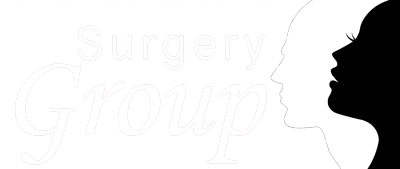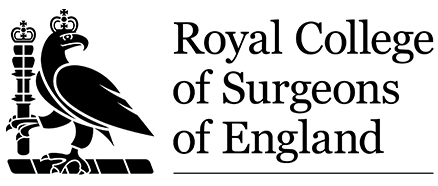One of the most popular and effective treatments for hair loss is finasteride, a medication that inhibits 5AR and reduces the production of DHT. Finasteride can slow down hair loss, stimulate hair growth, and improve hair density and quality in men with AGA. Finasteride is available in two forms: oral and topical. Oral finasteride is taken as a tablet, usually at a dose of 1 mg per day. Topical finasteride is applied as a solution or a gel directly to the scalp, usually at a concentration of 0.1% to 0.25%.
But what are the main differences between oral and topical finasteride? And which one is better for you? In this article, we will compare the pros and cons of each form of finasteride and help you make an informed decision.
 Oral Finasteride: Pros and Cons
Oral Finasteride: Pros and Cons
Oral finasteride is the most widely used and studied form of finasteride for hair loss. It was approved by the FDA in 1997 and the MHRA in 1999 for treating AGA in men. Oral finasteride has several advantages, such as:
• Convenience: Oral finasteride is easy to use, as you only need to take one tablet per day, preferably at the same time.
• Effectiveness: Oral finasteride has been proven to reduce hair loss, increase hair growth, and improve hair density and thickness in men with AGA. According to clinical trials, oral finasteride can increase hair count by 9% to 10% after one year, and by 15% to 18% after two years of treatment.
• Safety: Oral finasteride is generally well-tolerated, with few and mild side effects. The most common side effects are related to sexual function, such as decreased libido, erectile dysfunction, and ejaculation disorders. However, these side effects are rare, affecting only 2% to 4% of men who take oral finasteride. Moreover, these side effects are usually reversible, meaning they disappear after stopping the medication or continuing the treatment.
However, oral finasteride also has some drawbacks, such as:
• Systemic exposure: Oral finasteride is absorbed into the bloodstream and affects the whole body, not just the scalp. This means that oral finasteride can lower the levels of DHT not only in the hair follicles, but also in the prostate, testicles, and other tissues. This can have some unwanted effects, such as reducing the size of the prostate, altering the levels of hormones, and interfering with other medications.
• Pregnancy risk: Oral finasteride is not suitable for women, especially those who are pregnant or may become pregnant, as it can cause birth defects in the foetus. Oral finasteride can pass through the semen and reach the female partner, so men who take oral finasteride should use a condom or avoid sexual contact with pregnant women. Women who are pregnant or may become pregnant should not handle crushed or broken oral finasteride tablets, as the medication can be absorbed through the skin.
• Prescription-only: Oral finasteride is not available over the counter, but only by prescription from a doctor. This means that you need to consult with a doctor before starting or continuing the treatment, and that you need to pay for the prescription fee and the medication cost. In the UK, oral finasteride is not available on the NHS, but only privately. At Hair Repair Clinic you can get oral finasteride for under 50p per tablet. Including our free online prescription service.
 Topical Finasteride: Pros and Cons
Topical Finasteride: Pros and Cons
Topical finasteride is a newer and alternative form of finasteride for hair loss. It was developed to overcome some of the limitations of oral finasteride, such as systemic side effects and pregnancy risk. Topical finasteride has several advantages, such as:
• Localized action: Topical finasteride works only on the scalp, where it is applied. It does not enter the bloodstream or affect the rest of the body. This means that topical finasteride can lower the levels of DHT only in the hair follicles, without affecting the prostate, testicles, or other tissues. This reduces the risk of systemic side effects and drug interactions.
• Fewer side effects: Topical finasteride has fewer and milder side effects than oral finasteride, especially related to sexual function. According to studies, topical finasteride has a similar or lower incidence of sexual side effects than oral finasteride, and these side effects are usually transient and resolve after stopping treatment.
• Combination therapy: Topical finasteride can be combined with minoxidil, another medication that stimulates hair growth, for better results. Minoxidil is a vasodilator, which means it increases blood flow and oxygen delivery to the hair follicles. Minoxidil can also enhance the absorption of topical finasteride, making it more effective. Studies have shown that topical finasteride and minoxidil combination therapy can increase hair count, hair thickness, and hair growth more than either medication alone.
However, topical finasteride also has some drawbacks, such as:
• Less evidence: Topical finasteride is not yet approved by the MHRA for hair loss treatment, and there are fewer and smaller studies on its effectiveness and safety than oral finasteride. More research is needed to confirm the long-term benefits and risks of topical finasteride, and to compare it with oral finasteride in larger and longer trials.
• Less convenient: Topical finasteride is less convenient to use than oral finasteride, as it requires daily application to the scalp, preferably twice a day. Topical finasteride also needs to be massaged into the scalp, allowed to dry, and washed off daily. Topical finasteride can also make the scalp feel greasy or sticky, and may stain the hair or clothing.
• Pregnancy risk: Topical finasteride is still unsafe for women who are pregnant or may become pregnant, as it can still be absorbed through the skin and cause birth defects in the foetus. Men who use topical finasteride should avoid contact with pregnant women or women who may become pregnant, and use a condom or avoid sexual contact with them. Women who are pregnant or may become pregnant should not touch or handle topical finasteride, as the medication can be transferred to them.
Topical Finasteride vs Oral Finasteride: Which One is Better for You?
The choice between topical and oral finasteride depends on your personal preferences, goals, and medical conditions. Both forms of finasteride can be effective and safe for treating hair loss in men, but they also have some differences that you should consider. Here are some factors that may help you decide:
• Convenience: If you prefer a simple and easy treatment, oral finasteride may be better for you, as you only need to take one tablet per day. If you don’t mind applying a solution or a gel to your scalp twice a day, topical finasteride may be an option for you.
• Effectiveness: If you want a proven and reliable treatment, oral finasteride may be better for you, as it has more evidence and studies to support its efficacy. If you want a newer and potentially more potent treatment, topical finasteride may be better for you, as it may have a stronger effect on the scalp DHT levels.
• Safety: If you are concerned about systemic side effects, drug interactions, or hormonal changes, topical finasteride may be better for you, as it has less systemic exposure and fewer side effects than oral finasteride. If you are not bothered by mild and rare sexual side effects, oral finasteride may be better for you, as it has a long and established safety record.
• Combination therapy: If you want to boost your hair growth results, you may benefit from combining finasteride with minoxidil, another hair loss medication. You can use oral finasteride with topical minoxidil, or topical finasteride with topical minoxidil, depending on your preference and tolerance.
The bottom line is that both topical and oral finasteride can help you stop your hair loss and regrow your hair, but they also have some pros and cons that you should weigh before choosing one. The best way to find out which one is right for you is to consult with a dermatologist, who can evaluate your hair loss condition, your medical history, and your goals, and prescribe the best treatment plan for you.
If you are interested in trying topical or oral finasteride for your hair loss, you can order it online from Hair Repair Clinic, a trusted and reputable online provider in the UK. We offer a free online prescription service, where you can get a private prescription for finasteride, and a fast and discreet delivery service, where you can get your medication delivered to your door. We also offer competitive prices, high-quality products, and excellent customer service. Contact us today and start your hair loss journey with Hair Repair Clinic.


